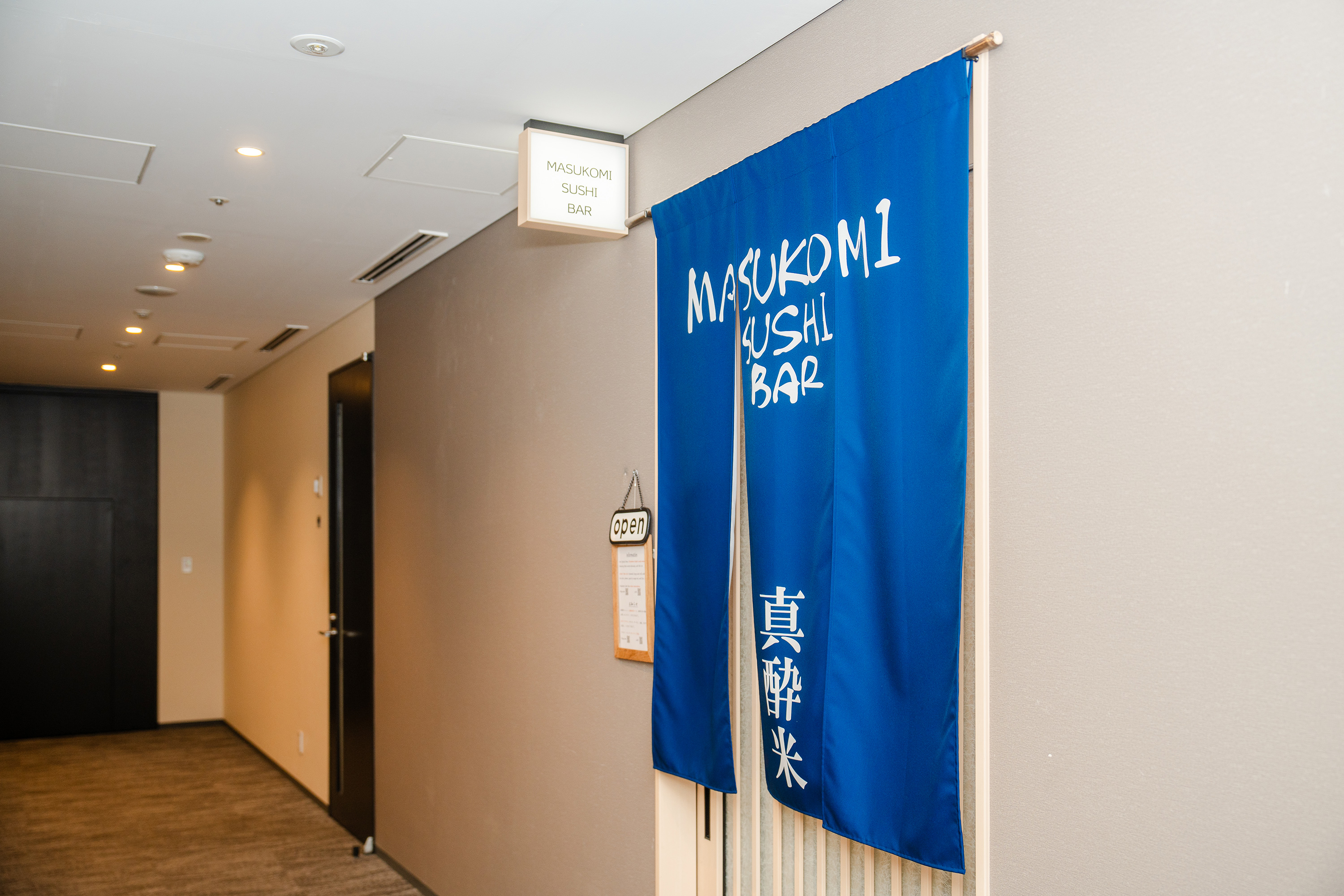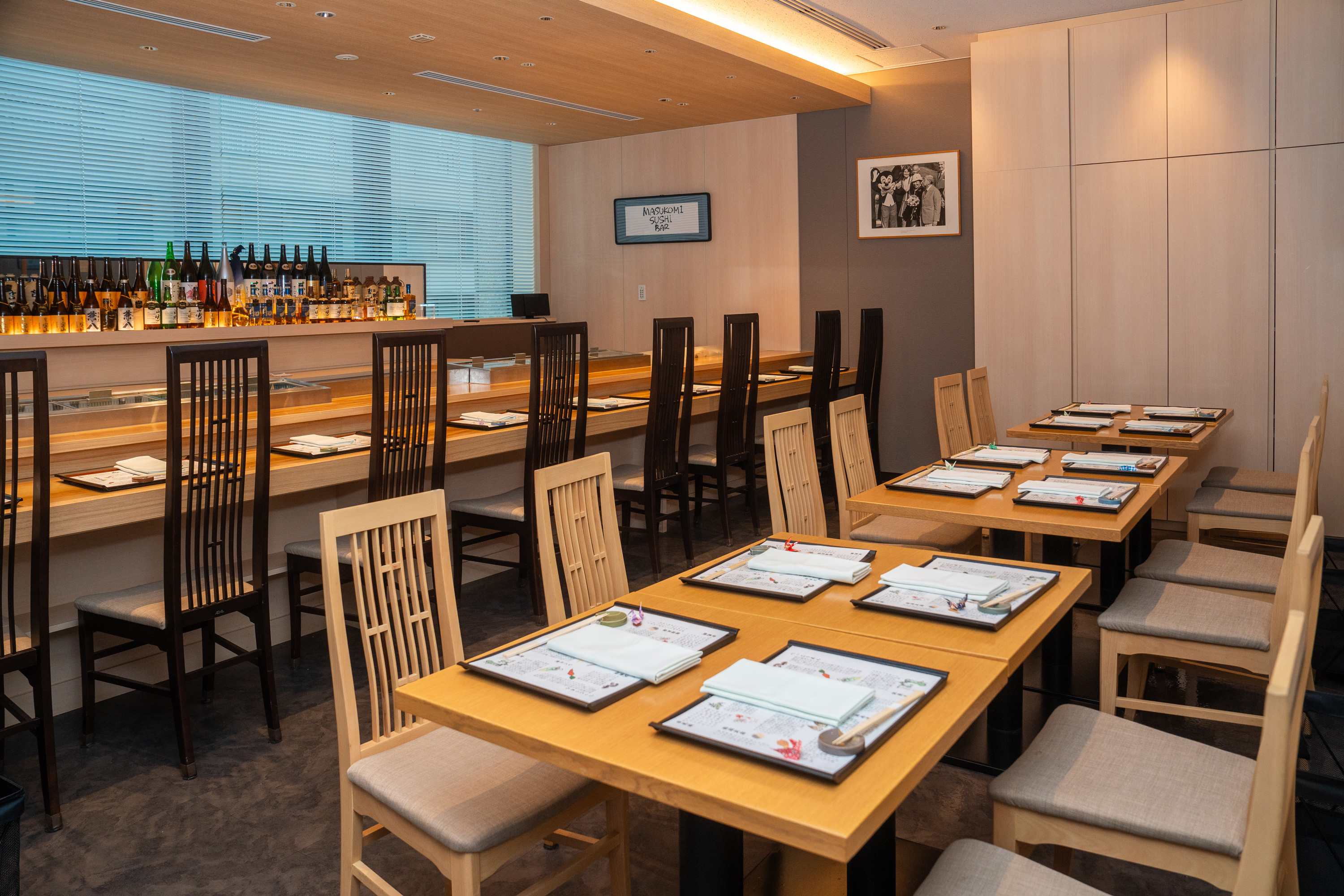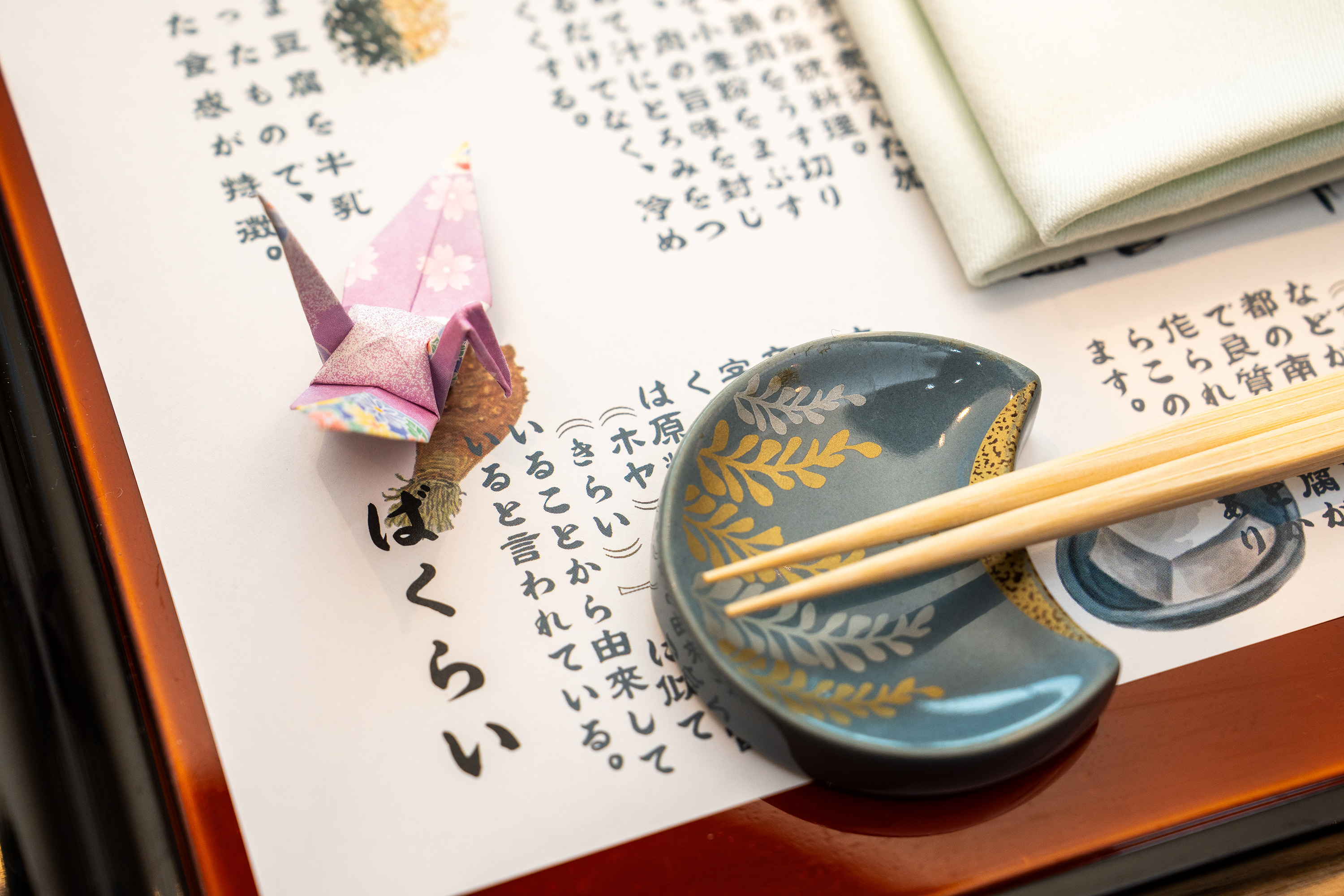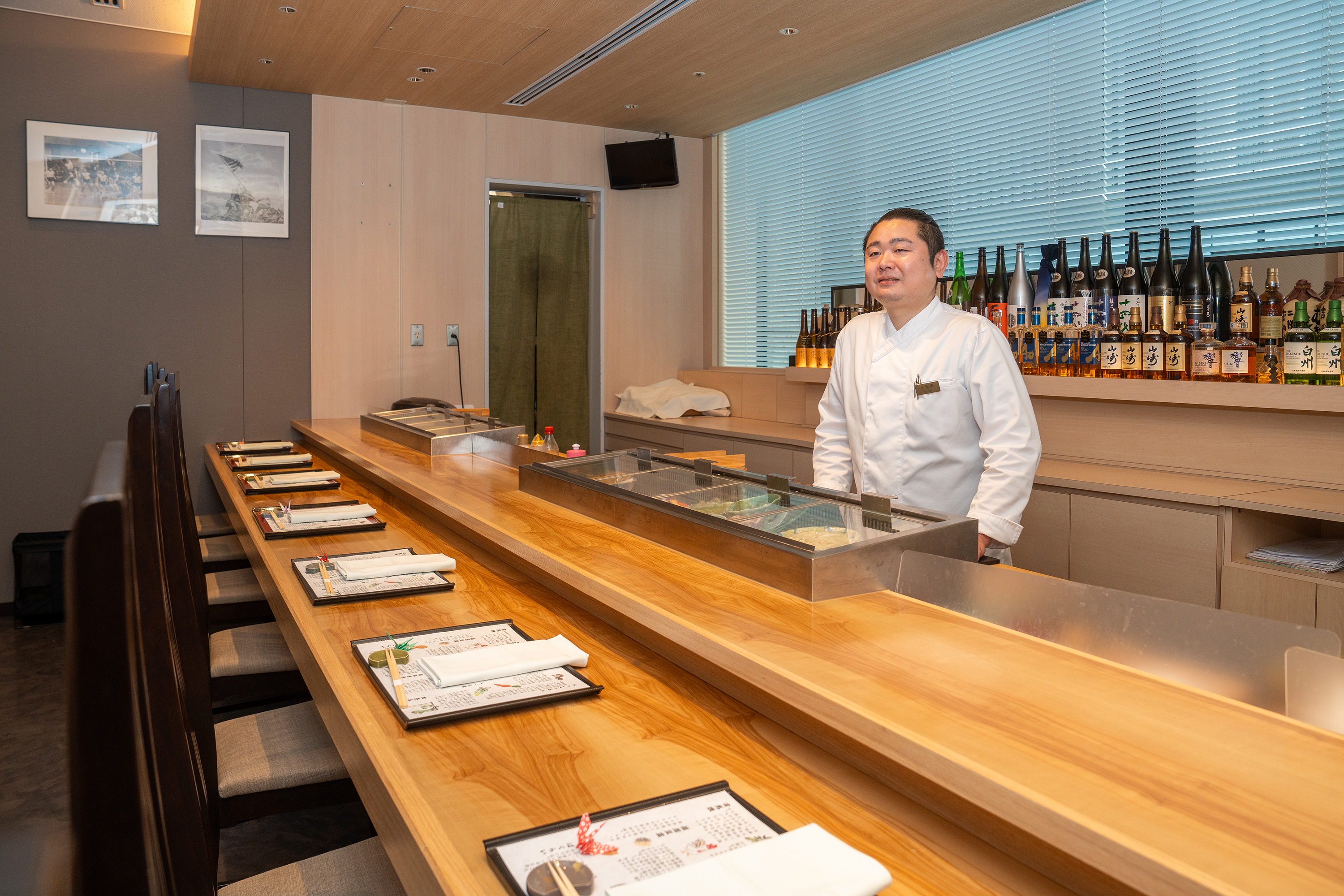Issue:
February 2025
The FCCJ’s Masukomi sushi bar serves exquisite dishes at unbeatable prices

Masahiko Ueda cultivated relationships with entrepreneurs seeking financial support in the 1990s, when he worked for one of the three major long-term credit banks in Japan. In 2000, Ueda entered the restaurant industry when he established Bookoff Startups, currently BOS Partners, with his former clients. It was a far cry from his previous work in consulting.
Of Ueda’s restaurants, Sushi Ichi in Tennozu, Shinagawa, was alone in surviving the Covid-19 pandemic, when the sector was subject to restrictions introduced by the government. The end of the pandemic, though, brought him to the FCC’s Masukomi Sushi Bar in June 2023.
Sushi Ichi is a casual sushi bar akin to a relatively cheap izakaya. Masukomi, located in the center of the Marunouchi international business district, must compete with high-class sushi purveyors in the nearby Ginza neighbourhood.
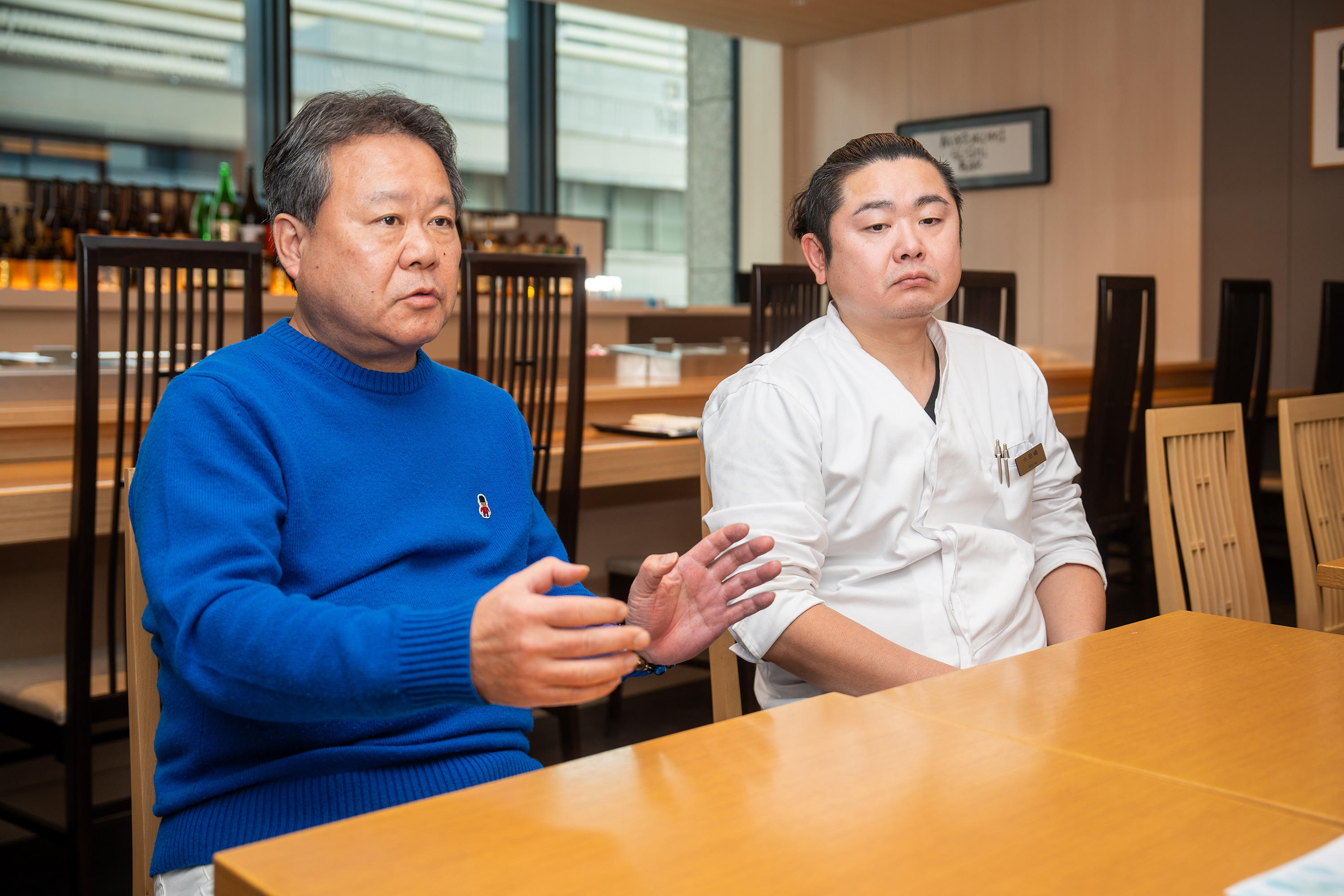
Ueda decided the best approach was to offer good sushi at a reasonable price. While dinner with aperitif and a set of nigiri-zushi at some Ginza restaurants costs around ¥30,000 per head, Masukomi offers a dinner of the same quality for between ¥10,000 and ¥15,000. And lunch, of course, costs even less.
Ueda has been able to maintain his commitment to high-quality sushi by drawing on the business relationships he formed as a consultant. That is why Masukomi serves exquisitely fresh seafood from all over Japan. His contacts include a businessman who ran a venture firm that sold fuel for fishing boats, and who introduced Ueda to fishermen. Currently, Masukomi serves winter delicacies such as hirame (flounder) and madai (red sea bream) from Maizuru in Kyoto Prefecture, as well as buri (yellow tail) from Hokkaido.
As head chef at Masukomi, Tadaaki Odajima is responsible for turning the fish into beautifully presented plates of sushi. After graduating from high school in Akita, Odajima worked for Sushi Ko in Tsukiji – a chain that operates numerous branches in Tokyo – as a trainee sushi chef. Before joining BOS Partners in 2022, he served sushi at Japanese Restaurant & Bar Shokudo in Honolulu for a year from 2013.
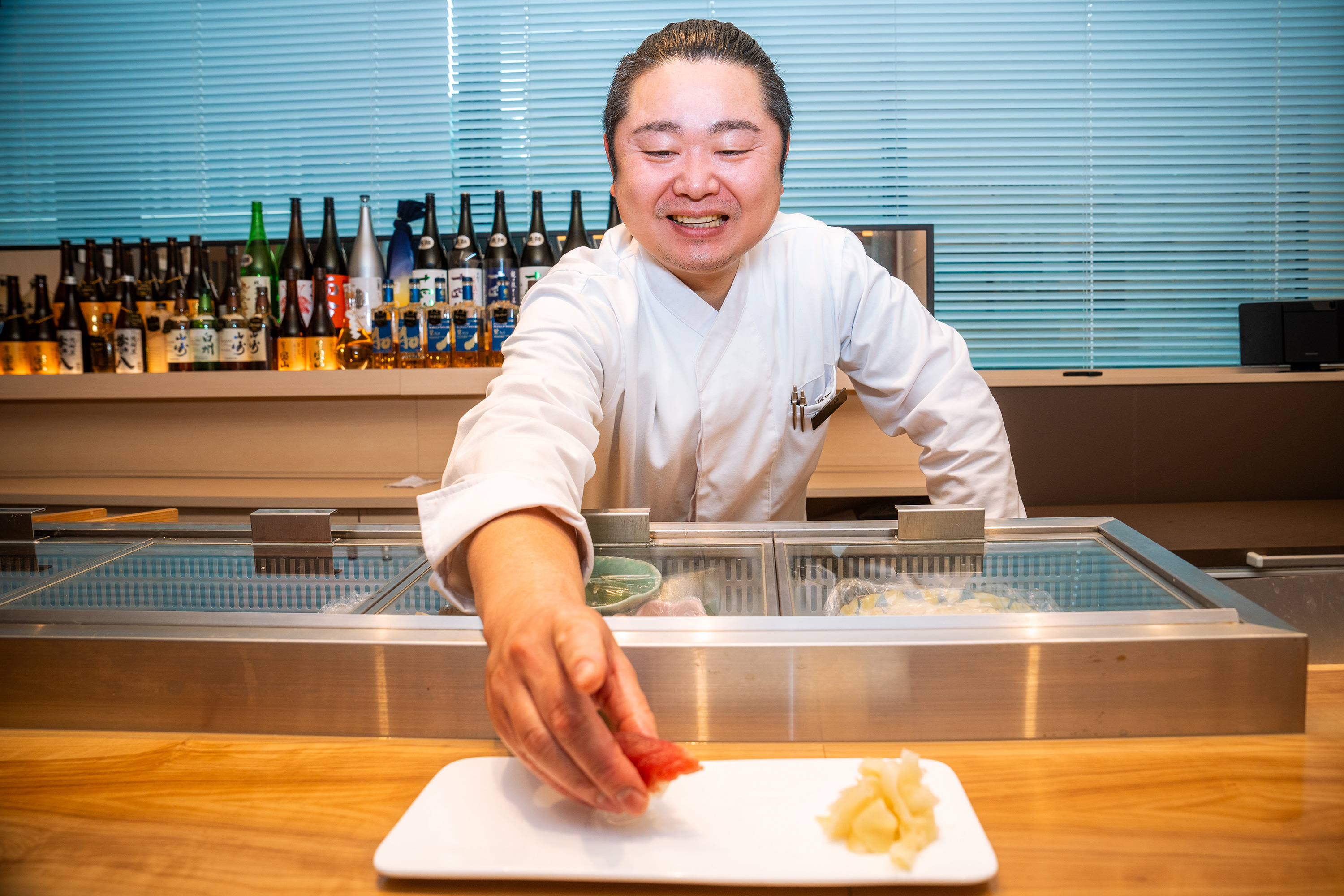
Each fish should be treated differently, according to Odajima. “Aji (Japanese horse mackerel) and saba (mackerel) need to be as fresh as possible, but maguro (tuna), tai (snapper) and hirame are at their best after being left to ‘mature’ for a few days,” Odajima said. Most of Masukomi’s produce comes directly from regional ports and not through Toyosu fish market – an arrangement that gives Odajima greater freedom in deciding when and how to present it.
For example, monkfish liver – a typical appetizer in winter – is not dressed with ordinary vinegar and soy sauce, but ripened and boiled to get rid of its “raw” flavor. Odajima then adds yuzu to give it a delicate accent.
It is this attention to detail that has regular customers spending long periods at the Masukomi counter, enjoying watching the master at work.
Masukomi is known not only for its fish but also its wide selection of sake. It stocks about 20 labels, including Juyondai from Yamagata and highly recommended by Ueda and Odajima. Known as one of the most difficult sake’s to source, Juyondai is treasured by aficionados for the subtle harmony it achieves with fresh fish. Odajima recommends pairing the sake with anago (sea eel) and shellfish such as hotate (scallop).

Other rare brands of sake stocked at Masukomi include Jikon from Nabari in Mie Prefecture, and Hiroki from Aizu in Fukushima Prefecture. Here, too, Ueda has dipped into his business network to procure sake labels that are otherwise hard to come by.
Ueda is now expanding his business network through monthly meetings of startup entrepreneurs held at Masukomi and Sushi Ichi – the continuation of his role as a supporter of new businesses stretching back nearly a quarter century. They include people who form business partnerships and those who secure outside investment for their startups.
The meetings have secured Masukomi’s reputation as a place not only to do business – but as somewhere to relax with colleagues and friends over sublime sushi and sake.
Takuya Nishimura is a freelance journalist Senior Fellow at Asia Policy Point, and associate writer for Frontline Press. He is a regular member of the FCCJ and the Japan National Press Club. Nishimura is a former writer for Hokkaido Shimbun Press, where he served as chief editorial writer, Washington bureau chief, and captain in charge of the Prime Minister's Office of Japan. He was born in Sapporo and graduated from Waseda University.


